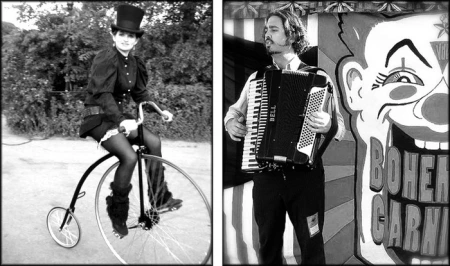In the 1970s, everyone was pretty sure what it meant to be successful as a musician. The requirements of scale for physical distribution meant that you were pretty much either filling stadia or you were in a weekend band. But with the rise of digital distribution of music, there are endless discussions by artists on what’s happening to the music industry, and how to make it as an artist, and just what it means to ‘make it’ anyway.
But I’m not an artist. I’m a music fan. And what I want as a music fan is pretty simple: I want there to be an endlessly renewing supply of music that I like.
With the rise of affordable professional-quality tools the barrier for entry to music production is lower than it’s ever been. And with digital music formats, the incremental cost of distribution is no longer related to economies of scale. And with the rise of one-to-one or many-to-many networks (instead of the the one-to-many of broadcast), there’s a way for artists to find an audience–not just an audience, but their unique tribe. All this means that the ‘music industry’, for lack of a better phrase, now has the potential to support a musical middle class.
I want this to happen, and here’s why. It’s far more valuable to me for there to be twenty artists who each make fifty thousand dollars a year than for there to be one who makes a million dollars annually, because I’m likely to like at least a few of the twenty and I may or may not like the millionaire. This isn’t anti-populist snobbery. Music is so deeply personal: it’s about what resonates with your psyche, not just what’s critically-acclaimed or popular. The more productive artists there are out there, the more likely there will be music that speaks to each of us personally. And yes, I know that music isn’t alienated labour, and that musicians will always do their best to write and play music. But they still have to pay the bills, and the biggest threat to there being music I like is still that artists have to go get a job at Jiffy Lube in Boise, Idaho.
Even better than there being lots of musicians whose work I like is the possibility of actively contributing to the creation of the music that I want to hear. Until recently, this ability has been the privilege of princes and popes, or at least the fairly rich. But the rise of mechanisms like Kickstarter means that anyone can be a patron of the arts (well, a micropatron at least).
One of the drawbacks of the Kickstarter model is that it’s deliberately focused on ‘projects’, which means that often making the music itself (from buying groceries to paying for studio time) is mostly taken care of, and you’re essentially prepaying for the physical distribution. As well, Kickstarter’s emphasis on rewards you can hold in your hand doesn’t work as well for people who want just the music, not the merch. Singer-songwriter Jamie Kent has created another model that he’s calling The Collective. Like Kickstarter, it has tiers of backers with appropriate rewards, but unlike Kickstarter, it’s explicitly about backing his career, rather than a specific project. I’m curious (and not sanguine) about how well it worked though, given that the date on that page is 2009. [see ‘EDIT‘, below]
One of the side effects of supporting musicians with a world of distributed Medicis is that relationships matter. Cory Doctorow called this one back in 2006 in the context of writing, but it’s equally applicable to music:
But what kind of artist thrives on the Internet? Those who can establish a personal relationship with their readers…[who have] the ability to conduct their online selves as part of a friendly salon that establishes a non-substitutable relationship with their audiences. You might find a film, a game, and a book to be equally useful diversions on a slow afternoon, but if the novel’s author is a pal of yours, that’s the one you’ll pick. It’s a competitive advantage that can’t be beat.
That photo above is from the Kickstarter for Meredith Yayanos‘s musical project The Parlour Trick, which I backed. I would never would have heard her music but for her work on Coilhouse and her presence on Twitter, and knowing her on Twitter was a big factor in backing her. That’s true for most Kickstarter projects: having a relationship with a community is key to successful funding (just ask Amanda Palmer). And the Kickstarter format itself, with videos and updates, is really about building and sustaining this relationship with backers, sometimes through a rocky fulfillment process.
This does make me a tiny bit sad as a fan, though. I hear about and can support lots of great music, but somewhere there’s an introverted teenager who’s making the most amazing electronica in her bedroom, and I want to hear (and support) that too.
EDIT: I am completely remiss for forgetting about Kristin Hersh‘s sustained crowdfunding initiative to support her music production, Strange Angels, which leverages the CASH Music set of open-source tools for musicians. Thanks to @jimmynohands for the reminder.
Thanks to Maia for pointing me to Jamie Kent’s project. The image at the top is for the first album by Meredith Yayanos’s band The Parlour Trick; go back it on Kickstarter.





